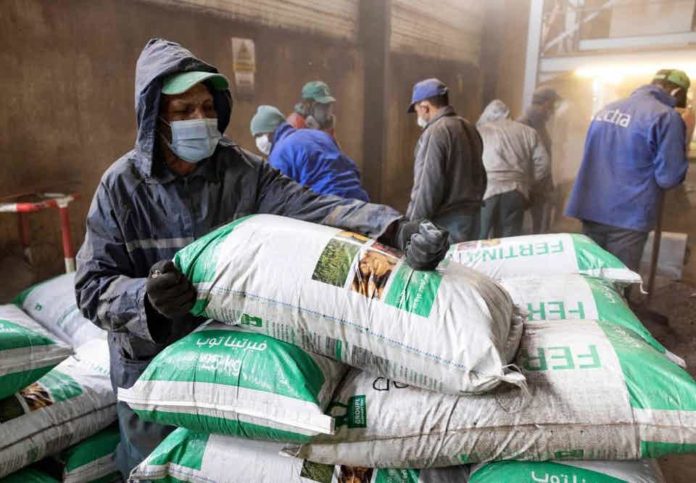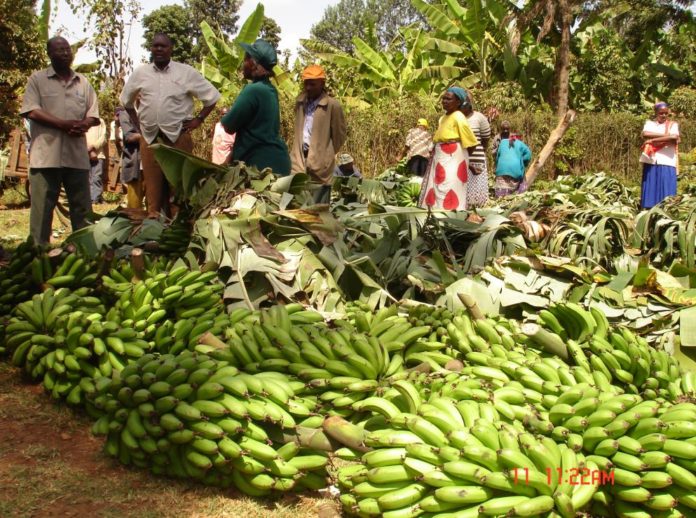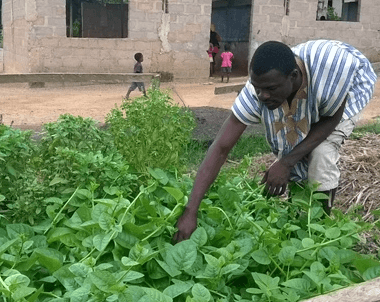Morocco has a large fertiliser industry with huge production capacity and international reach. It is one of the world’s top four fertiliser exporters following Russia, China, and Canada.
How sincere and credible are Ghana’s agribusiness private sector players and key stakeholders? Farmer Morrison quizzed.
It’s interesting how constantly players within Ghana’s Agro-Industry have and continue to call on governments to either provide or undertake one form of project or make available financial assistance for Agro-Industry development and growth.
Minister assures payment of 2021 PFJ’s supplied seeds.
The Minister for Food and Agriculture, Hon. Dr Owusu Afriyie Akoto has assured the National Seed Trade Association of Ghana (NASTAG) that he is working towards the payment of seeds supplied to government in 2021 to facilitate the Planting for Food and Jobs ( PFJ) initiative.
His comments come after a petition was issued by NASTAG to the Chairman of the National Seed Council, Dr Josiah Wobil to intervene and make sure they are paid.
In a bid to address the issue, a delegation from NASTAG led by the Chairman of the National Seed Council paid a courtesy call on the Minister.
At the meeting, Dr Josiah Wobil explained that the non payment of supplies on the part of government has disturbed the seed producing companies commercial transactions since they need to recover the funds to continue providing seeds to farmers.
Dr Wobil also commended the Minister for his enormous contribution to the national seed industry;
” I personally know that the Minister has been doing a lot of work in the background to make sure NASTAG actually grows. It was the Minister who in the advent of the PFJ programme made it possible for a resurgence in the seed industry in Ghana”.
He added that the introduction of PFJ has rekindled the national seed council and established the growth of the seed industry “before the advent of the PFJ it was very difficult to see if Ghana will ever have a buoyant national seed industry but the PFJ has changed everything”.
The Minister on his part explained the various steps taken by government to ensure that the industry is properly established. He also mentioned the financial problems facing the country which he said is affecting almost every sector of the economy and has unfortunately affected the ability to pay for this particular service.
However, he indicated that he is working towards the payment of supplies. Dr Akoto said he will discuss with the Minister for Finance, Ken Ofori Atta to make him understand that this is a critical issue that needs to be addressed to enhance food security and improve the livelihood of farmers.
It will be recalled that the Agric Minister, Dr. Owusu Afriyie Akoto inaugrated a nine (9) Member governing Council of National Seed Council chaired by Dr Josiah Wobil on March 9 2022 at the premises of the Ministry of Food And Agriculture, Accra.
The board was mandated to ensure the continuous growth of the seed industry.
Calls grow for govt to do more on food security.
There is a need to urgently devise ways to significantly boost food productivity if the country to achieve food security targets, experts and farmers say.
They say one of the key bottlenecks facing the sector is lack of results-oriented research and called for increased funding in that area. The issue is even more pressing considering that the average farm size in Rwanda is 0.5 hectare, with stakeholders calling for deliberate efforts to boost productivity on limited farmland.
This, they say, will be critical in helping Rwanda achieve its food security targets and fix issues related to pockets of hunger that emerge in different parts of the country from time to time.
Alphonsine Nzamwita, a farmer in Gatsibo District, told The New Times that food insecurity is still a challenge, noting that crop productivity has not been as good as expected. “When the last rains came they washed away some of the crops. And it became worse when the dry spell came,” she said, adding that his produce was reduced by 30 per cent as a result. “That is why some people in our district are complaining of hunger,” she said, adding that the low productivity has triggered a hike in food prices.
She said: “The farm gate price for a kilogramme of beans, for instance, goes for Rwf650, up from Rwf400 previously. As a result, some of the retailers sell a kilo at over Rwf700.”
There is a need to scale up subsidised small-scale irrigation for smallholder farmers, she said. Hadija Munganyinka, another farmer in Kayonza District, also said she has struggled to put food on the table in recent days. “Since January we haven’t really had reliable rain,” said the mother of three.
Concorde Ngoga, a 64-year-old farmer in Ndego Sector in Kayonza, said the government came to their aid with food relief late last year following harsh drought conditions. “I lost over 80 per cent of what would have been my harvest due to drought,” he said.
Statistics show that 15 per cent of Rwandans are still food insecure due to different factors, including dry spells. Food insecurity is defined as the disruption of food intake or eating patterns because of lack of money and other resources. Covid-19, climate change effects Jean-Chrysostome Ngabitsinze, the Minister of State in the Ministry of Agriculture and Animal Resources, said that Covid-19 slightly affected food security, while climate change effects have also been disruptive.
“We do research every three years on food security status and the recent one shows that Rwanda is about 85 per cent food secure,” he said. “Before Covid-19, we were at over 86 per cent.” Ngabitsinze explained that, despite the impact of Covid-19, Rwanda hopes to eliminate food insecurity over the next five years. “Being food secure means people being able to have a meal three times per day,” he said. “We still need to put in more effort to be 100 per cent food secure.”
He admitted there was a need for a holistic study into the matter. Officials pointed out that drought and heavy rains affected maize and bean production, especially in Eastern Province.
Beans production in the province shrank by 2 per cent, while maize production decreased by 0.6 per cent, from 378,000 tonnes last year to 357,000 tonnes, they say.
Irrigation, quality agro-inputs Ngabitsinze said irrigation will remain key to attaining food security targets, warning that climate change effects pose a real challenge. “We are mainly banking on scaling up irrigation and quality seeds to reach our targets,” he said, particularly citing the role of hillside and small-scale irrigation schemes.
According to Rwanda Agricultural and Animal Resources Development Board (RAB), as of last year, the total area currently under irrigation stood at over 67,100ha –including over 37,273ha of marshlands; 9,439ha of hillside and 20,388ha of small-scale irrigation technology.
The country seeks to irrigate 102,284 hectares by 2024. It is also hoped that at least 75 per cent of farmers will be using quality seeds on consolidated land by 2024.
Today, 60 per cent of farmers use quality seeds on consolidated land, according to officials. Meanwhile, the government hopes to see more youth join the sector to help professionalise it and boost productivity.
The average age of farmers in the country stands at 55 and agricultural experts fear that this is likely to drive down productivity if nothing is done to reverse the trend.
Young people are also seen as the key to truly transforming the sector through innovation. However, a recent study indicated that only 18 per cent of the youth in the sector employ agric-tech innovation.
Another sticking issue that dogs the sector is limited research. Pierre Claver Rutayisire, the Principal of College of Business and Economics at University of Rwanda, said there is a need for agricultural research that responds to community problems. “With the average farm size in Rwanda at 0.5 hectares, there is a need for research on how best to increase production on small plots of land,” he said.
According to a recent study by the local government, 1.5 million Rwandans, or 16 per cent of the population, have no means to own or rent homes of their own and can hardly put food on the table.
In the recently approved national budget for the 2022/23 fiscal year, Rwf150 billion was allocated as direct investments into agriculture, equivalent to just over 3 per cent of total budget.
Government says there are additional indirect investments that will impact the sector over the next one year, including proposed infrastructure projects like roads.
A re-look at home gardening; an alternative way to ensure food security.
Growing up as children, most of our parents had home (backyard) gardens, and would usually take us there to weed and prune, among other farm practices. Mum would usually send us to get her ‘Nkontomire’ from the garden. Our elder brothers would also be asked to get some cassava or harvest plantain for ‘Fufu’ or ‘Ampesi’. Food was always natural and fresh.
Ghana has enough stock of food to safeguard food security – Agric Minister.
The recent price hikes in farm inputs coupled with the shortage of inorganic fertilizers and other factors have inflated the prices of food commodities and reduced the number of farm acreage by the farmers in the country. This has generated fear and panic among the general public predicting hunger strikes in the coming seasons.
Essential food imports hit US$2bn annually.
Ghana’s import of essential food commodities has reached an average of US$2 billion each year, the Ministry of Finance (MoF) has said.
Fisheries Minister petitioned by 10 CSOs over the potential authorisation of 2 industrial trawlers.
Civil society organizations, unions, and associations working to secure safe, sustainable, and equitable fisheries in Ghana have written to the Minister of Fisheries and Aquaculture Development seeking clarity on the potential authorization of two industrial trawlers in Ghanaian waters.
Why does the agriculture sector resist sustainable practices?
A team from the Diverfarming project analyses how institutional settings create cognitive lock-ins in decision-making for farmers when it comes to adopting sustainable farming practices
State clears farmland purchase tied to Gates.
The Microsoft co-founder owns some 269,000 acres across dozens of states.
North Dakota’s attorney general has found the sale of a couple of thousand acres of prime farmland to a group tied to Bill Gates complies with a Depression-era law meant to protect family farms because the land is being leased back to farmers.














